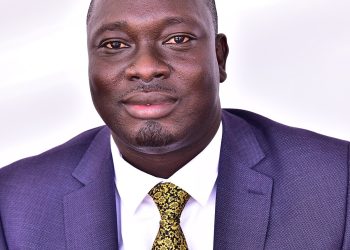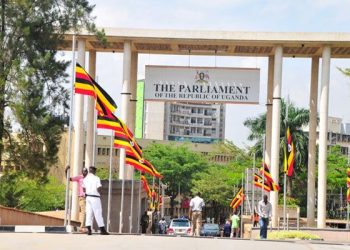In a minority report on the 2019/2020 budget framework paper (draft budget), government has been advised to cut the huge cost of public administration by reducing the size of Cabinet, Parliament and other administrative units.
Butambala MP Muhammad Muwanga Kivumbi, Dokolo Woman MP Cecilia Ogwal and Ntungamo Municipality MP Gerald Karuhanga raised concern that because of the huge cost of public administration, the Government now spends more money on the recurrent expenditure which is predominantly consumptive than the total government revenue collection.
“It is worrying to note that the projected domestic revenue can adequately meet government’s recurrent expenditures, such as fuel, workshops, advertisements, rent and debt repayment, among others. The proposed recurrent expenditure is sh19.3 trillion against a projected revenue collection of sh18.3 trillion. This justifies the need to reduce wasteful expenditures,”
Kivumbi stated
“It is also important to note that the sh9.5 trillion that government plans to spend on debt repayment is 52% of the projected sh18.3 trillion total government revenue,”
The report added
“It is against that background that we propose the need to restructure government by minimizing recurrent expenditure pushers, such as reduction of the size of Cabinet, administrative centers, size of Parliament, privileges of political leaders and donations, among others,” the trio proposed.
On the public debt which has reached sh42 trillion, the legislators suggested the need for Government to minimize its appetite for borrowing in order to safeguard the country from debt.
The MPs also proposed that the Government tables a repayment schedule by the end of June 2019 and be referred to the appropriate committee after which Parliament can have a thorough debate on what needs to be done for the better management of the public debt.
The Speaker of Parliament, Rebecca Kadaga, said it was necessary for Parliament to have a special session of Parliament to discuss the public debt. In the 2016/2017 financial year Audit Report, the Auditor General discovered that over sh18 trillion that government had borrowed was lying idle due to delayed implementation of projects.
Documents from the finance ministry indicate that Uganda’s public debt has been sporadically increasing for the last 10 years from only $1.9b in the 2008/2009 financial year to $10.8b as of June 2018. The minority report makers also challenged Government to present a breakdown of statistics indicating how the various regions and categories of Ugandans are contributing to the 6.1% economic growth.
Ntoroko County MP Gerald Rwemulikya Ibanda said:
“Government has a high appetite to borrow. Many loans that were borrowed are yet to be utilised and delayed utilisation makes these loans more expensive.” Padyere County MP Joshua Anywarach said:
“We have been misled to overborrow over a lopsided argument that the debtto-Gross Domestic Product (GDP) ratio is still below 50%, yet the actual yardstick would be how much money government has to pay back the loans. Jinja East MP Paul Mwiru said:
“We need an inclusive economy. More than 85% of our GDP is being held by 10% of our population.”
Commenting on the proposal to downsize government, Makerere University economics lecturer Dr Fred Muhumuza said:
“It is the way to go. A year ago, government promised to merge some entities, but a whole year has passed and nothing has happened. The size of government is too big for our small economy.”






























































